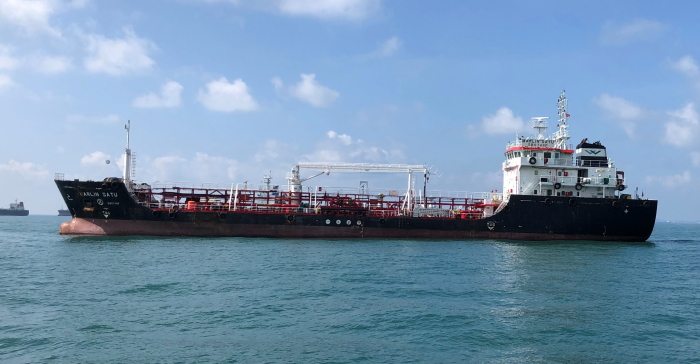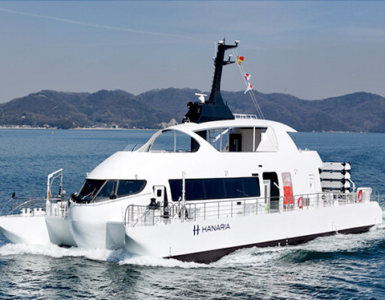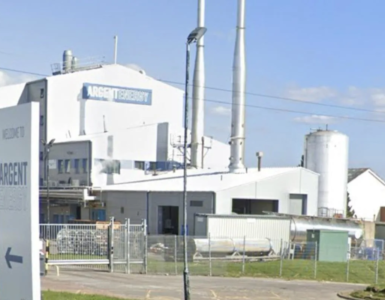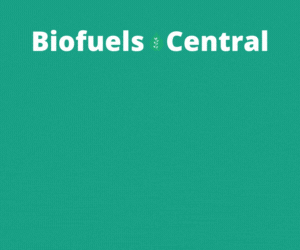Toyota Tsusho performs first trial in Japan to supply biodiesel fuel to ships at the port of Nagoya.
Toyota Tsusho Corporation (“Toyota Tsusho”) announced that Toyotsu Energy Corporation (“Toyotsu Energy”) performed a trial with a tugboat*1 operated by Sanyo Kaiji Co., Ltd. (“Sanyo Kaiji”)–an affiliate of Nippon Yusen Kabushiki Kaisha (“NYK Line”)–for ship-to-ship bunkering*2 of marine biodiesel fuel*3 (“biofuel”) at the Port of Nagoya on April 19, 2022.
This was the first attempt to supply biofuel using ship-to-ship bunkering in Japan.
The biofuel supplied to Sanyo Kaiji’s tugboat was partly derived from waste cooking oil collected from companies in Japan under the Toyota Group and Toyota Tsusho Group through collaboration between Toyota Tsusho and Daiseki Eco.
Solution Co., Ltd. This initiative also contributes to the circular economy through the creation of a supply chain that uses local production for local consumption.
🔥 What about we co-host a webinar? Let's educate, captivate, and convert the biofuels economy!
Biofuels Central is the global go-to online magazine for the biofuel market, we can help you host impactful webinars that become a global reference on your topic and are an evergreen source of leads. Click here to request more details
As a carbon-neutral marine fuel that can be used as it is in existing engines, it will serve to promote carbon neutrality in the maritime transportation industry, including companies operating coastal trading vessels, if a supply chain for regular use is established in Japan.
1. Background
The maritime transportation industry accounts for about 2% of the world’s greenhouse gas (GHG) emissions. In 2018, the International Maritime Organization (IMO) adopted a strategy for reducing GHG emissions from ships and set a target of reducing GHG emissions by 50% compared to the 2008 level by 2050.
Moreover, the Japanese government has announced that it will reduce GHG emissions by 46% compared to the 2013 level by 2030 and achieve carbon neutrality by 2050, and is promoting a shift to marine fuels from heavy oil and light oil, which are petroleum-derived, to alternative fuels under its Green Growth Strategy.
Although there are expectations for ships to use hydrogen and ammonia in the medium to long term, due to accompanying requirements such as expensive investments and technological development, biofuel is currently regarded as a viable prospect for carbon-neutral fuel.
2. About This Project
The Toyota Tsusho Group is focusing on efforts to switch to alternative fuels for ships. Besides performing the first trial of biofuel operation by a marine fuel supply ship (bunker barge) in Singapore in April 2021, the Group also performed a biofuel operation trial for an oceangoing vessel of NYK Line in June 2021.
This time, the Group plans to conduct a continuous biofuel supply trial over a period of approximately three months for tugboats of Sanyo Kaiji at the Port of Nagoya, which handles the largest volume of goods in Japan.
Through this initiative, the Group will verify the effectiveness of using biofuel derived from waste cooking oil for coastal trading vessels.
The Toyota Tsusho Group will continue to contribute toward the transition to a decarbonized society by accelerating businesses contributing to the reduction of GHG through the industrial life cycle and promoting initiatives toward carbon neutrality, so as to pass on a better global environment to the children of the future.
Overview of Toyotsu Energy Corporation
| Company name | Toyotsu Energy Corporation |
|---|---|
| Location | Nagoya City, Aichi Prefecture |
| Established | July 5, 1969 |
| Shareholder | Toyota Tsusho Corporation 100% |
| Representative | Fumiaki Nakanishi, President |
| Business description | Sales of petroleum products; import and export of lubricating oils; sales of liquified petroleum gas; sales and installation of security equipment; and sales of biomass and liquified natural gas |
| Website | https://www.toyotsuene.co.jp/ (in Japanese) |
*1 Tugboat
A ship that guides and assists large ships—which cannot move freely with precision in confined areas such as within port limits—by towing with ropes or pushing with its bow to support them in berthing and unberthing safely
*2 Ship-to-ship bunkering
A method of fueling a ship moored at a quay or pier and a ship alongside by a fuel supply ship sideways
*3 Biodiesel fuel (BDF)
BDF is a fuel alternative to light oil obtained by methyl esterification of vegetable oil and fat and is expected to serve as an alternative fuel for petroleum-derived heavy oil and light oil.
The United Nations’ Intergovernmental Panel on Climate Change (IPCC) views BDF as carbon neutral throughout its lifecycle because CO2 is absorbed in the course of growth of plants, from which BDF is made.
READ the latest news shaping the biofuels market at Biofuels Central
Toyota Tsusho Performs First Trial in Japan to Supply Biodiesel Fuel to Ships at the Port of Nagoya – Contributing to the Realization of Carbon Neutrality by Reducing Greenhouse Gases from Marine Fuel – April 19, 2022








